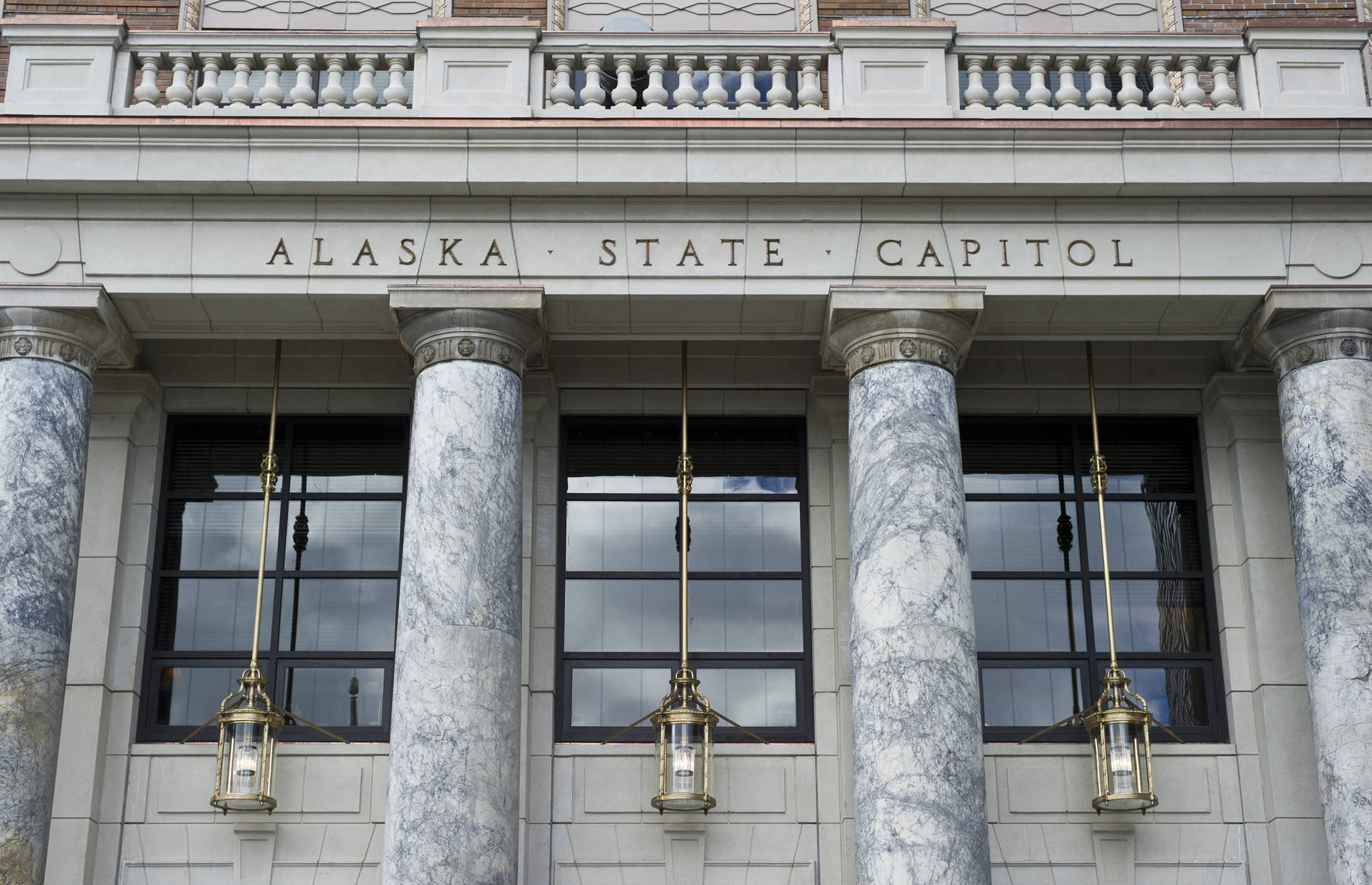A bill is advancing in the Alaska Senate that has the potential to overwrite a ballot initiative planned for this fall’s election.
On Tuesday evening, the Alaska Senate’s state affairs committee approved a revised version of House Bill 44 that includes much of a so-called “good governance” ballot initiative.
Under the Alaska Constitution, if the Legislature passes a bill “substantially similar” to a ballot measure, that measure will be removed from the fall ballot.
That removal is a long way from happening: HB 44 will head to the Senate Judiciary Committee next, then (if approved) to the Senate Finance Committee.
It would have to survive a vote of the full Senate, and then the changes made by the Senate would have to be confirmed by the House.
After all that, Gov. Bill Walker would have the final word.
It promises to be a lot of work for an idea that is already approved for the fall ballot.
Speaking in committee on Tuesday, Sen. Kevin Meyer, R-Anchorage and chairman of the state affairs committee, said he thought HB 44 (as passed by the House) had some good ideas about how the Legislature should address conflicts of interest.
“We got thinking that if that (section) matches the initiative, let’s look at the other things on the initiative and see if we can’t combine everything else into this one bill, and if so, then the initiative wouldn’t need to go before voters,” he said.
On Wednesday, he said passing HB 44 would save costs because the division of Elections wouldn’t have to put it on the ballot. Passing it this session would also allow it to go into effect more quickly.
As written, the initiative would require lawmakers to declare financial conflicts of interest before voting in the Legislature. It would prohibit some kinds of gifts from lobbyists. It would bar lawmakers from receiving per diem expense payments if they fail to pass a budget before the constitutional end of the Legislative session.
It would also place restrictions on foreign travel by lawmakers and on political contributions by foreign-influenced corporations.
Rep. Jason Grenn, I-Anchorage, is one of the three primary sponsors of the initiative and said on Wednesday that he was pleasantly surprised by the committee’s move. In prior hearings, senators had expressed skepticism of his version of HB 44, which contained only the financial-conflict component of the initiative.
“I give kudos to Sen. Meyer for reacting to something that’s obviously a priority, that’s obviously important to Alaskans,” he said.
On Tuesday, Meyer said the biggest unanswered question in his mind are the constitutional issues surrounding the measure.
Article 11, section 4 of the Alaska Constitution says in regard to ballot measures, “If, before the election, substantially the same measure has been enacted, the petition is void.”
Legislative attorney Daniel Wayne wrote in a March 21 memo that he believes the new version of HB 44 passes a multi-part test to determine whether it is “substantially the same measure.”
The most significant difference, he said, is the way the bill handles foreign influence, something that is already covered by federal law.
Libby Bakalar, an attorney with the Alaska Department of Law who examines issues for the Alaska Division of Elections, said by email that she is unwilling to offer a legal opinion on that matter without examining it in detail.
Wayne also informed lawmakers that the bill may be immune to a potential constitutional hurdle faced by the initiative. Article 11, section 7 of the Constitution prohibits initiatives that “make or repeal appropriations.”
Because part of the initiative restricts per diem expense payments, that section of the initiative could be vulnerable to a constitutional challenge.
“It could be interpreted as tantamount to repealing an appropriation,” Wayne said.
Sen. David Wilson, R-Wasilla and a member of the state affairs committee, asked Bakalar on Tuesday why she didn’t raise red flags about that issue.
She responded that the Department of Law is restricted in its authority to examine proposed ballot initiatives.
In his memo and in testimony, Wayne reminded lawmakers that even if the bill or initiative become law, legislators themselves will have the power to reverse it. For example, in 2006, Alaskans approved a ballot measure that requires the Legislature stick to a 90-day legislative session. That measure put the new limit into statute (instead of the constitution), and because one Legislature cannot bind another, the 90-day limit has become moribund.
• Contact reporter James Brooks at jbrooks@juneauempire.com or 523-2258.

